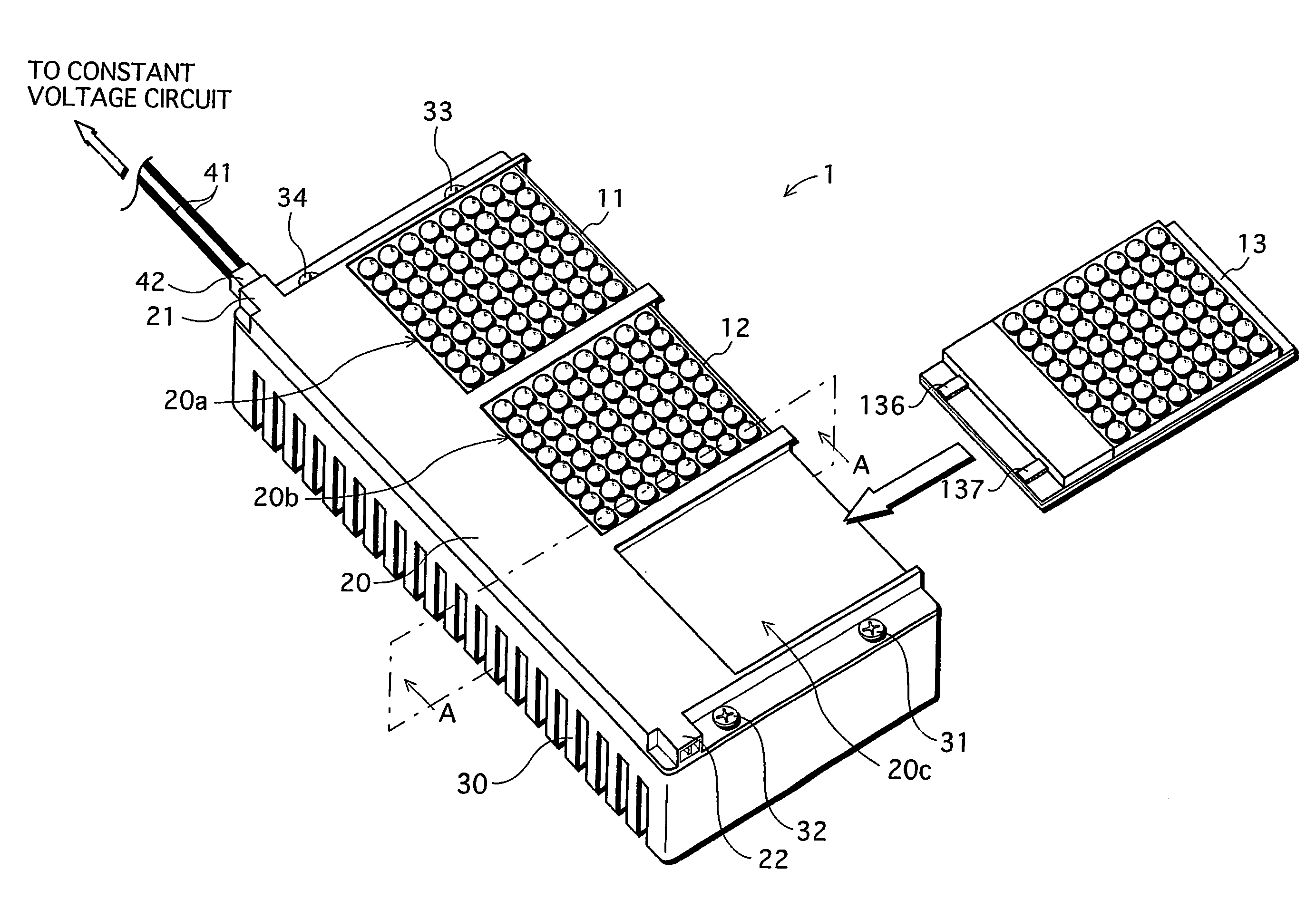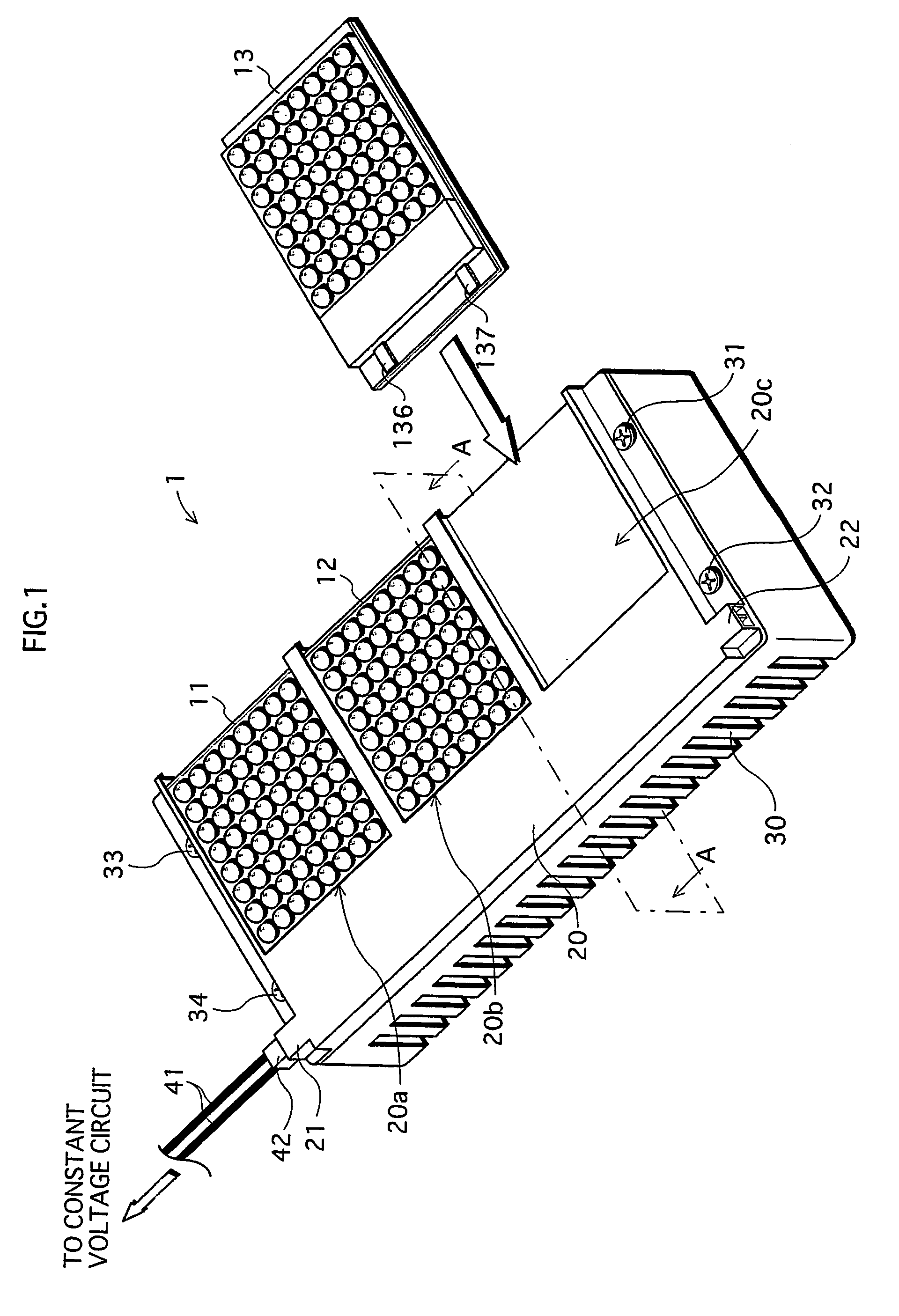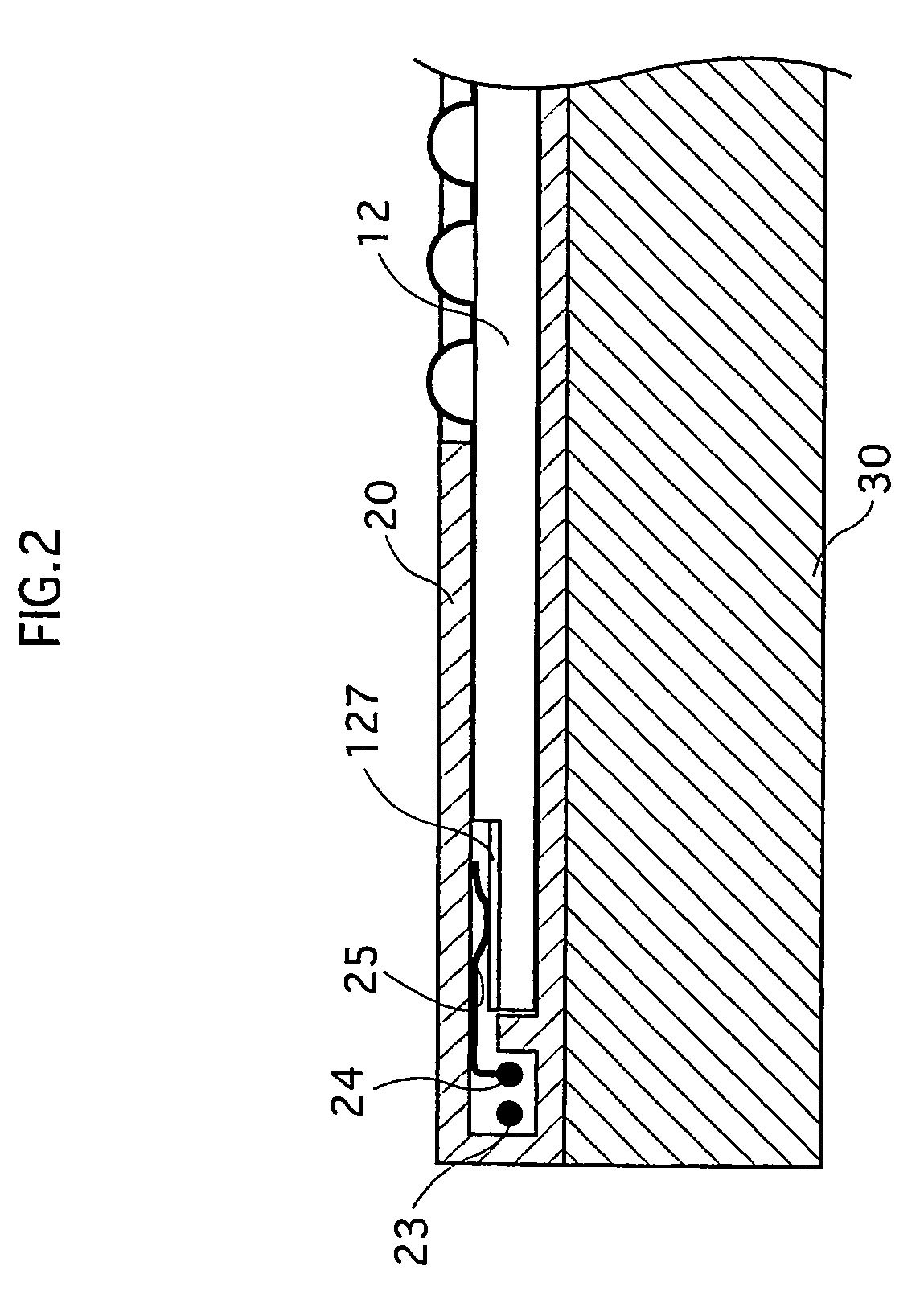Multichip LED lighting device
a multi-chip led lighting and LED technology, applied in the direction of lighting support devices, electrical apparatus casings/cabinets/drawers, coupling device connections, etc., can solve the problems of premature deterioration of led bare chips, significantly longer life expectancy, and differing specifications of replacement led modules from those of original led modules, so as to improve workability and efficiency, the effect of efficient heat expulsion
- Summary
- Abstract
- Description
- Claims
- Application Information
AI Technical Summary
Benefits of technology
Problems solved by technology
Method used
Image
Examples
first example
1. FIRST EXAMPLE
[0136]The following describes, as the LED bare chip abnormality, the LED module exhibiting an excessive rise in temperature, with use of FIGS. 11 to 13.
[0137]As shown in FIG. 11, a lighting device 101 of the fifth modification includes a module socket 120 that has three detachable LED modules 18, 19 and 20, and a constant voltage circuit unit 140 that provides a constant voltage to the LED modules 18, 19 and 20. Note that the constant voltage circuit unit 140 and the module socket 120 are connected by three leads.
[0138]Each of the LED modules 18, 19 and 20 has substantially the same structure, and the following describes the structure of the LED module 18.
[0139]As shown in FIGS. 11 and 12, the LED module 18 has a constant current circuit unit 18a, an LED mounting unit 18b, and a thermal element 18c. Note that since the constant current circuit unit 18a and the LED mounting unit 18b are as described in the preferred embodiment, a description thereof is omitted here.
[0...
second example
2. SECOND EXAMPLE
[0177]The following describes with use of FIG. 14 a case in which the amount of current in the LED bare chips increases excessively, as an example of an abnormality in the LED bare chips. Note that the module socket and constant voltage circuit unit of the present example are the same as those in the first example, and therefore descriptions thereof are omitted. Furthermore, since each of the LED modules in the present example has the same structure, the following describes an LED module 21.
[0178]The LED module 21 includes a constant current circuit unit 21a, an LED mounting unit 21b and a current detection unit 21c, as shown in FIG. 14. Note that the constant current circuit unit 21a and the LED mounting unit 21b are as described in the preferred embodiment, and therefore not described here.
[0179]The current detection unit 21c is for detecting current abnormalities in the LED mounting unit 18b (the current detection unit is the abnormality detection unit of the pre...
PUM
 Login to View More
Login to View More Abstract
Description
Claims
Application Information
 Login to View More
Login to View More - R&D
- Intellectual Property
- Life Sciences
- Materials
- Tech Scout
- Unparalleled Data Quality
- Higher Quality Content
- 60% Fewer Hallucinations
Browse by: Latest US Patents, China's latest patents, Technical Efficacy Thesaurus, Application Domain, Technology Topic, Popular Technical Reports.
© 2025 PatSnap. All rights reserved.Legal|Privacy policy|Modern Slavery Act Transparency Statement|Sitemap|About US| Contact US: help@patsnap.com



